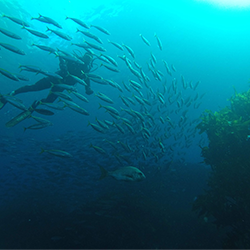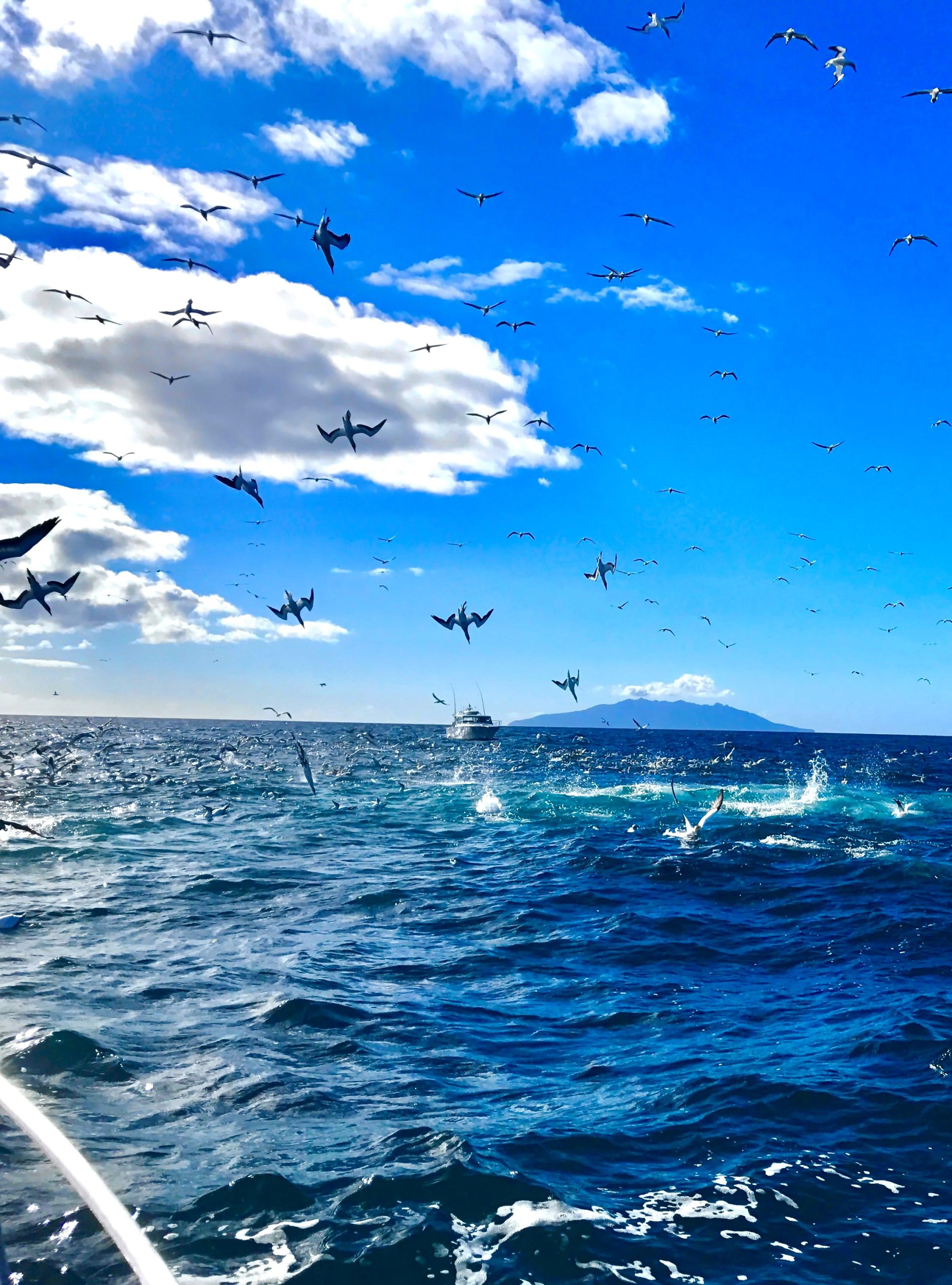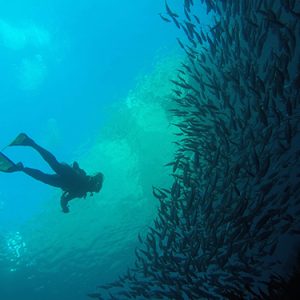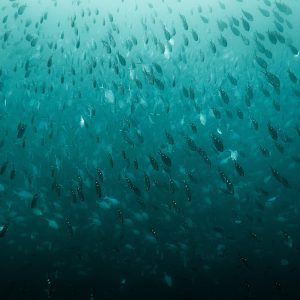
Marine ecosystems are delicate. When something is out of balance it impacts a variety of species. It can be likened to a domino effect. It’s about who eats who.
Baitfish including Blue and Jack mackerels are a perfect example. It’s incredible that such a small fish can influence the way an ecosystem functions. Yet it’s true. They are a vital food source for the entire coastal ecosystem – seabirds, dolphins, whales, kahawai and many others all rely on baitfish to survive.
Blue mackerel were the top species commercially harvested from the Hauraki Gulf in the past two years. Thousands of tonnes were exported to the Ivory Coast and the Philippines for no more than $1.60 per kilo. Even Kiwis can’t buy bait fish at this low price.
A gold coin does not represent the true value mackerel has within our ocean. The environmental cost of harvesting baitfish clearly outweighs the meagre economic returns.
It’s concerning that blue mackerel is another exploited species that has insufficient information to properly inform management. As a consequence, the total allowable commercial catch limit has not been changed since 2002.
Without a proper review it’s difficult to know what state the stock is in and if catch settings need to change.
It doesn’t take much for an ecosystem to become unbalanced. We need to be cautious about the amount of baitfish taken from our oceans, otherwise fish populations will plummet.
Government officials continue to advocate for maximum harvest strategies despite our oceans facing climate change and warming temperatures. Yet it is in our collective best interests to ensure our fisheries are thriving.
The Hauraki Gulf Fisheries Plan includes goals to mitigate the impacts of fishing on the marine food chain. This can only be achieved by catching fewer fish and restoring marine species that play important roles in the ecosystem.
Creating more marine protected areas does not change how much fish comes out of our ocean, it only alters where people can fish.
It’s simple, if we want to leave a legacy of an abundant and healthy ecosystem we need to restore the marine food web from the bottom up and stop low value, high volume harvesting of baitfish.





